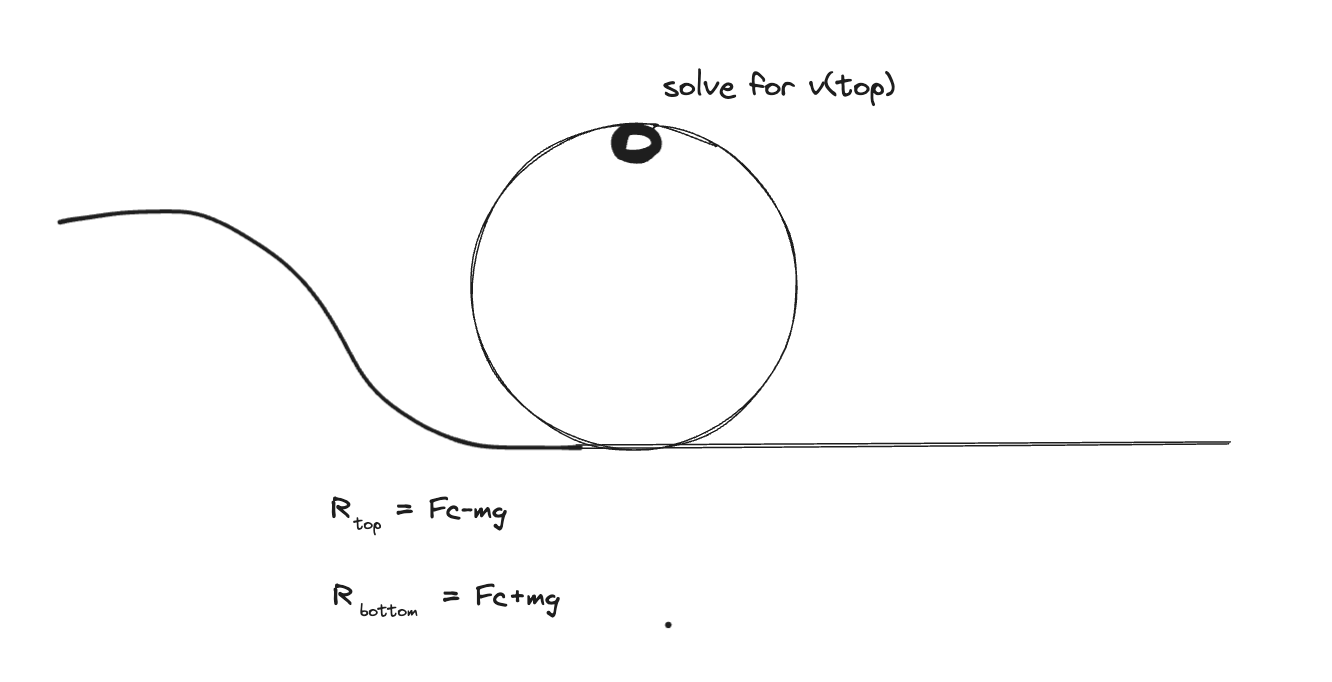Horizontal Circular Motion
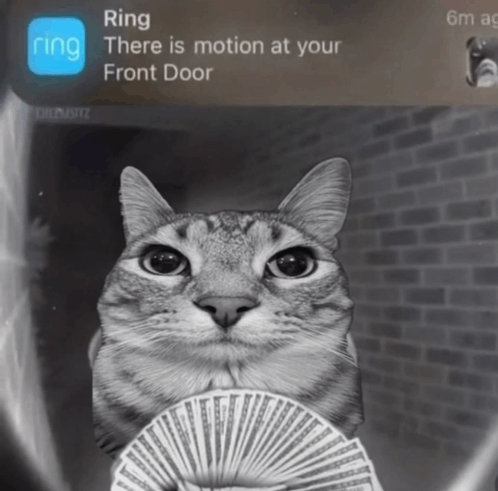
- If the speed and direction is constant, there is no unbalanced force acting on it.
- thus it won’t accelerate
- if you change direction, by definition, your velocity is no longer constant, thus you are accelerating.
- 3 ways to be perfectly horizontal with the pendulum.
- ball on the string with wings?
- if the object is massless, then string is massless
- direction: towards centre of circular motion
- Fc = Centrifugal force
- Fa = Centrifugal acceleration
vector quantities must have direction: always towards centre of circular motion
- Centripetal = “centre-seeking”
- Centrifugal force is not a force: mention it and you get put in the vacuum chamber
- One or more real forces must supply the centripetal force. the Fc is sometimes net or a resultant force. i.e. definitely not real!
Real forces
- gravity
- Friction: sideways friction between tyres and road on roundabout.
- tension: in both direction at all points. typically in high school physics, you say along the rope (usually you get away with that), direction towards the point of attachment
You will lose marks if you put in non-real forces (centrifugal forces) in a free-body diagram. If you are itching to... use dotted lines...
Electrical/Magnetic
- ???
Reaction Force/Normal Force
- Force pushing you forward
13/2/24
- practice questions with satellite
- average ormonde class.
- did 2 practice questions and called it a day.
Vehicles on Roundabouts
- Banked Corners
- x-
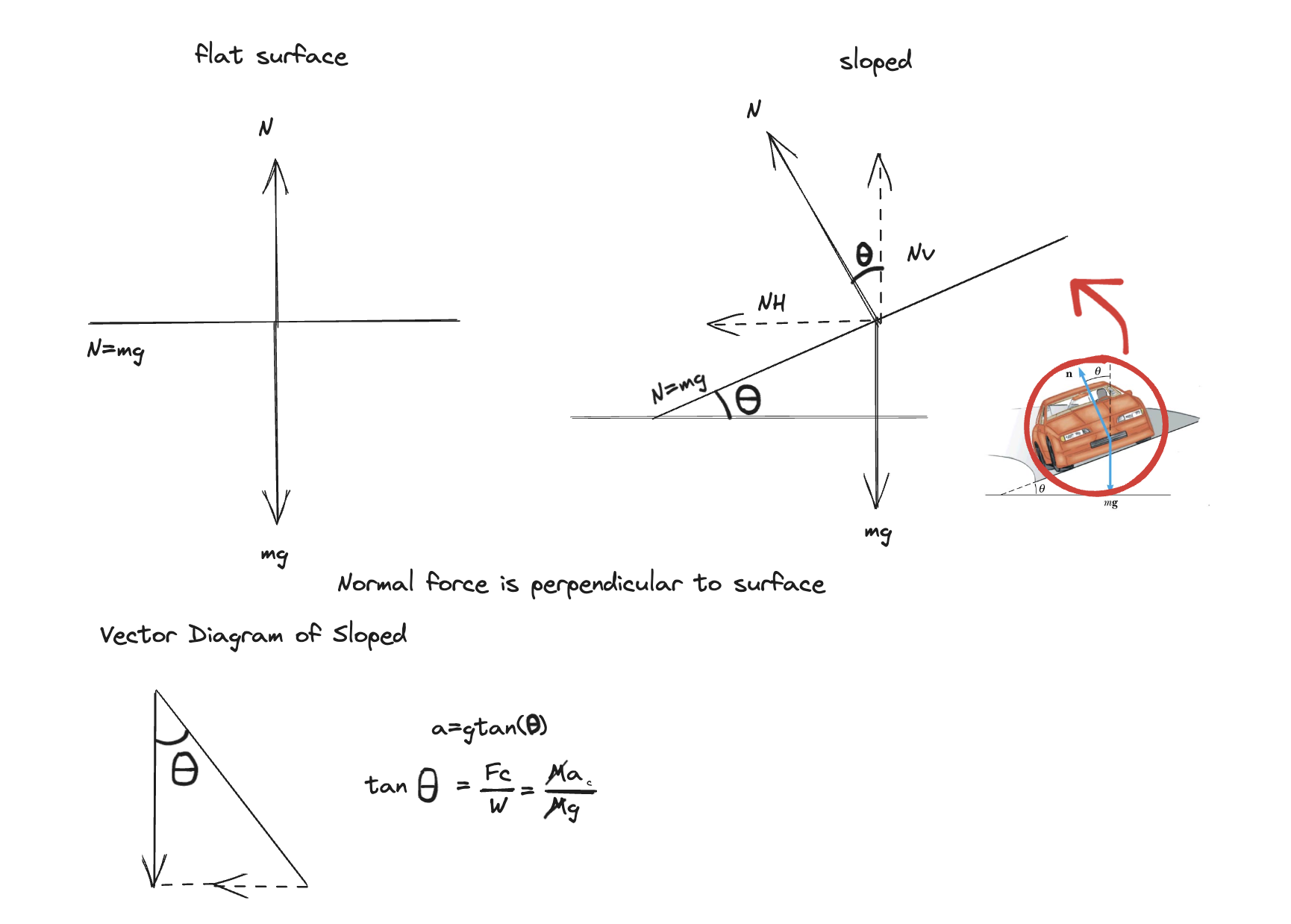
- Vertical Circular Motion Next Lesson
- Draw free body diagram, draw banked diagram, solve. dont memorise the type of circular motion questions!
Vertical Circular Motion
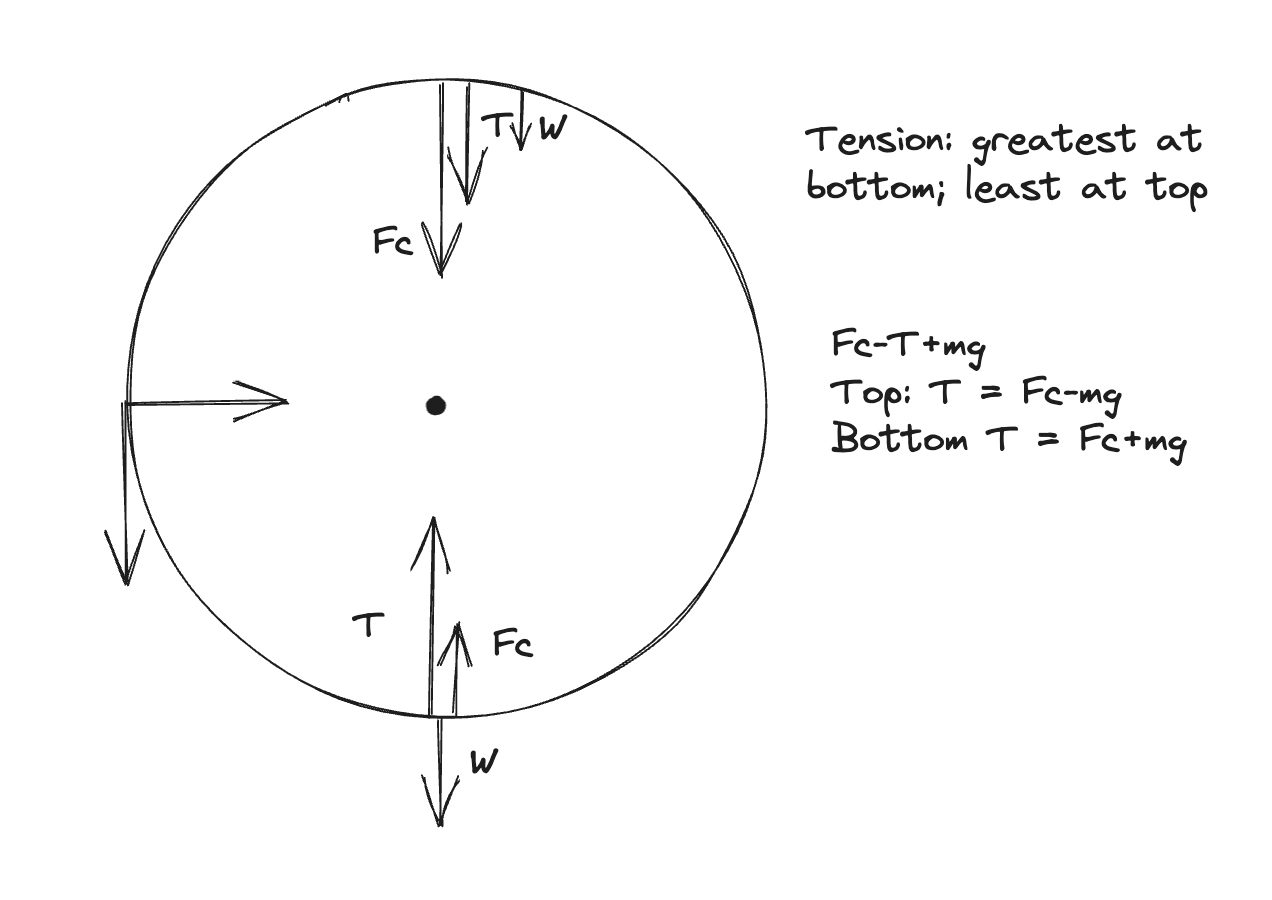 T_20 =20.13
T = 1.0065
r = 80cm
m = 1kg
g = 9.80ms^-2
a_c = 31.1761272379ms^-2
T_top = 10.688063619
T_bottom = 20.488063619
= (2pi*0.8)/1.0065 = 4.9940866823ms^-1
= 6.5ms^-1
= 8.5ms^-1
dr watters recounts the karti mufti day teacher vs student competition: the victory robbed where weight is in newtons
T_20 =20.13
T = 1.0065
r = 80cm
m = 1kg
g = 9.80ms^-2
a_c = 31.1761272379ms^-2
T_top = 10.688063619
T_bottom = 20.488063619
= (2pi*0.8)/1.0065 = 4.9940866823ms^-1
= 6.5ms^-1
= 8.5ms^-1
dr watters recounts the karti mufti day teacher vs student competition: the victory robbed where weight is in newtons
Gravity
-
Definition: Gravity is force of mutual attraction between any and all objects of mass extending to infinity (to the limits of the universe) and which decreases with distance as per the inverse square law.
-
Dr Waters has a talent of singing.
-
John (garfield) is attracting Dr Waters
-
Inverse square law: if you’re far away from an object, you won’t be pulled in, but there is still an attraction between you and the object.
-
A Field is the region of space time around an object which passes a particular property (e.g. mass) which gives rise to the field and within which other objects with the appropriate property (e.g. mags) experience Force.
-
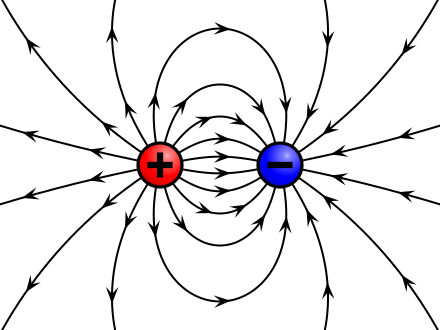
-
r is distance between the two objects
-
G is constant.
-
M1 is mass of first object
-
M2 is mass of second object.
-
“PLANT XOB and planet xib” - dr waters
-
mutual attraction, inverse square law - constant G =
- dont mess this up with planck constant :((.
- the two numbers are similar. consider coulombs law:
- dont mess this up with planck constant :((.
-
no way same formula, just values are different
-
m x a = xkg^2/m
-
x = m^2 s * m^-2/kg
-
3.64 x 10
-
a_c = 2,876.25 ms
